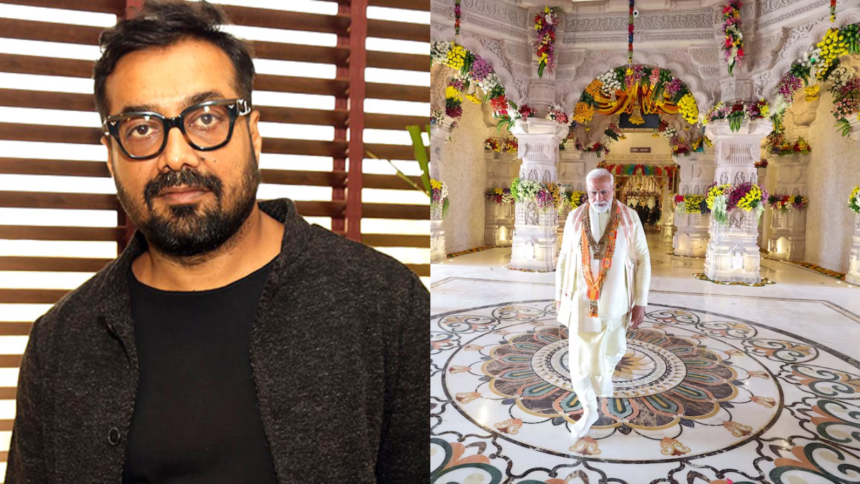Anurag Kashyap, the acclaimed filmmaker known for his outspoken views, has stirred controversy once again with his remarks on the recent inauguration of the Ram temple. Kashyap labeled the event as an ‘advertisement’ for what he perceives as the looming threat of fascism disguised as democracy.
In a candid interview, Kashyap expressed his disdain for the Ram temple inauguration, suggesting that it served as a symbolic precursor to a more significant ideological battle. He argued that the event was a manifestation of what he views as the growing influence of right-wing politics in India, warning against the dangers of authoritarianism masquerading as democratic governance.
Kashyap’s comments reflect his ongoing critique of the current political landscape in India, where he perceives a systematic erosion of democratic values and principles. He believes that the fight against such tendencies requires vigilance and active resistance from citizens.
Furthermore, Kashyap made a provocative statement about the need for a revolutionary mindset, suggesting that true change can only occur when individuals are willing to challenge existing norms and institutions. He urged people to take radical actions, such as destroying their phones, as a symbolic gesture of defiance against the status quo.
These remarks come at a time of heightened political polarization and social unrest in India, with debates over issues such as freedom of expression, secularism, and minority rights dominating public discourse. Kashyap’s outspoken stance adds fuel to the ongoing debate surrounding the role of artists and intellectuals in shaping the country’s future trajectory.
While his comments have garnered both support and criticism from various quarters, they underscore the importance of engaging in critical dialogue and dissent in a democratic society. Kashyap’s willingness to speak truth to power serves as a reminder of the vital role that artists and intellectuals play in holding those in authority accountable.
As the debate over the Ram temple inauguration and its implications continues to unfold, Kashyap’s outspoken views serve as a rallying cry for those who believe in the values of democracy, secularism, and pluralism. Whether his call for a revolutionary mindset will resonate with the broader public remains to be seen, but his words have undoubtedly sparked a necessary conversation about the future of India’s democratic fabric.
